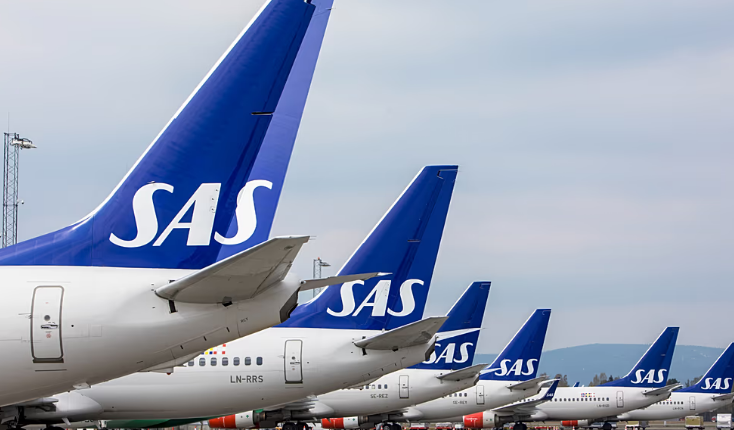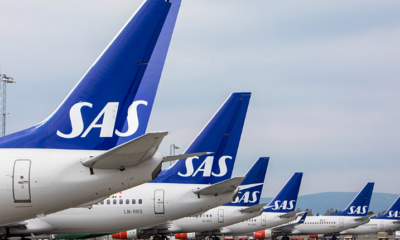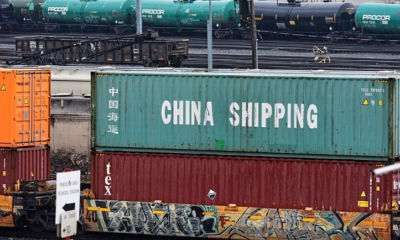Business
Timur Turlov: Architect of a New Financial Ecosystem

Early Ambitions and Foundations in Finance
Timur Turlov, born in 1987, entered the financial world at an unusually young age, starting as a trader with World Capital Investments (WCI) at just 16. His next career move to Uniastrum Bank saw him contribute to building systems that provided the bank’s subsidiary access to U.S. stock exchanges. These early roles set the stage for his entrepreneurial journey and ambition to transform financial services in emerging markets.
Establishing Freedom Finance and Expanding to Kazakhstan
In 2008, Turlov launched Freedom Finance, a brokerage firm focused on opening U.S. stock markets to a broader audience. By 2012, he expanded operations into Kazakhstan, a move that allowed Freedom Finance to grow into a leading brokerage. The company quickly scaled, establishing a bank, online brokerage services, and international reach.
In 2019, Turlov consolidated his companies into Freedom Holding Corp., becoming the first CIS-based financial company to list on Nasdaq under the ticker FRHC. Initially priced under $15, Freedom’s shares exceeded $80 by 2024, marking a significant milestone. This rapid growth elevated Turlov’s net worth to $3.3 billion by May 2024, securing his place on the global Forbes list.
Building a Diversified Financial Ecosystem
Freedom Holding Corp. has evolved into a comprehensive financial ecosystem, headquartered in Kazakhstan with a footprint across 22 countries. Key services include Freedom Bank, which offers digital mortgage solutions; Tradernet, a multilingual platform that integrates AI-powered trading tools; Freedom Pay, a cross-border payment service; Freedom Life and Freedom Insurance for accessible online insurance; and Freedom Telecom, delivering high-speed internet and expanding 5G coverage. Serving around 5 million clients, the ecosystem combines finance, insurance, and telecommunications to meet modern consumer needs.

Expansion in the U.S. and European Markets
In 2020, Freedom Holding entered the U.S. market by acquiring Prime Executions Inc., providing direct access to American exchanges. The 2023 acquisition of LD Micro strengthened Freedom’s position within the U.S. financial ecosystem. In Europe, Freedom Finance Europe Ltd., launched in Cyprus in 2021, now operates in multiple countries with over 200,000 accounts. Turlov is also exploring growth opportunities in Turkey, the UAE, and Azerbaijan, indicating a focus on emerging markets.
Community Engagement and Social Projects
Beyond business, Turlov is committed to social impact in Kazakhstan. Since 2023, he has led the Kazakhstan Chess Federation, promoting the game among youth and integrating it into educational curricula. As chairman of the QJ League, a youth football initiative, he supports young athletes across the nation. Freedom Holding also partners with environmental groups to restore the Aral Sea, supported by the AraldySaqta card, which enables cashback donations. The QALAM project, initiated by Turlov, celebrates Central Asian history and culture through multimedia content.
Business
Alphabet Plans Rare 100-Year Bond as Investor Demand Surges Amid AI Spending Push

“Google’s parent company Alphabet is offering a rare 100-year bond in sterling markets after its original $20bn (€16.8bn) US dollar bond sale was massively oversubscribed. This makes it the first tech company to sell a century bond since Motorola in 1997.”
Alphabet is moving ahead with plans to issue a highly unusual 100-year bond in the sterling market, following overwhelming investor interest in its recent US dollar bond sale. The technology giant intends to raise about £1 billion (€1.15 billion) through the century bond, marking a notable return of ultra-long corporate debt in the technology sector.
Reports indicate the sterling offering has already attracted orders approaching ten times the amount Alphabet plans to raise. The move follows a major bond sale earlier this week in which Alphabet raised $20 billion (€16.8 billion) in US dollar-denominated debt. The original target of $15 billion (€12.6 billion) was increased after investor demand exceeded $100 billion (€84 billion).
The company is preparing to issue debt across several currencies as it seeks to broaden its funding sources. Alongside the sterling century bond, Alphabet is reportedly exploring a bond sale in Swiss francs. The planned offering would mark the first time a technology company has issued a 100-year bond in nearly three decades. Motorola last sold a century bond in 1997.
Alphabet’s US dollar debt package was divided into seven segments, with the longest maturity extending to 40 years and scheduled to mature in 2066. Pricing for the bonds is expected to be slightly tighter than initially projected, reflecting strong investor interest. The greatest demand was recorded for shorter-term bonds, with three-year securities priced at only 0.27 percent above US Treasury yields.
The bond sales are being managed by JPMorgan, Goldman Sachs and Bank of America, which are coordinating the company’s multi-currency fundraising effort.
Industry analysts say issuing debt in multiple currencies allows Alphabet to reach a broader pool of investors while managing borrowing costs. Sterling markets currently offer relatively lower interest rates compared with US dollar markets, which could help make the century bond more attractive and cost-efficient for the company.
Alphabet’s borrowing activity comes as technology companies increase spending on artificial intelligence infrastructure. The company recently announced plans to invest more than $185 billion (€155 billion) in capital expenditure tied largely to artificial intelligence development and expansion of cloud computing services.
To support this spending, Alphabet’s long-term debt has grown sharply, reaching $46.5 billion (€39 billion) in 2025. Despite this increase, the company maintains strong liquidity, holding more than $125 billion in cash reserves.
Other major technology firms have also raised large amounts of debt to finance AI investments. Oracle recently secured $25 billion (€21 billion) in a bond sale that attracted record investor demand. Financial analysts estimate technology hyperscalers could borrow around $400 billion (€335.7 billion) in 2026, more than double the total borrowed in 2025. The increase could push overall issuance of high-grade US corporate bonds to record levels this year.
Business
Consortium Agrees to All-Cash Deal to Acquire Polish Parcel Company InPost

A consortium of investors has reached an agreement to acquire all shares of Polish-founded parcel locker company InPost, betting on the growth of self-service delivery across Europe. The deal is structured as an all-cash public offer valued at €15.6 per share.
The consortium includes funds managed or advised by Advent International, FCWB LLC—a wholly owned subsidiary of FedEx Corporation—A&R Investments Ltd., and PPF Group, together with InPost itself. The agreement is conditional and recommended by the InPost board.
InPost is best known for its proprietary Paczkomat parcel machines, widely used across Poland. These white self-service lockers, often located in subway stations or local shops, allow customers to send and receive small and medium parcels independently, bypassing traditional courier methods.
“Together, we will strengthen our network and reach more consumers with enhanced fast and flexible delivery options as we continue our objective of redefining the European e-commerce sector,” said Rafał Brzoska, CEO and founder of InPost. Brzoska confirmed he will remain as chief executive, and the company’s headquarters, management team, and key innovation operations will continue to be based in Poland.
“Importantly, I remain fully committed to leading the InPost Group. Our headquarters, management team and key innovation capabilities will remain in Poland, which will continue to be the centre for implementing the group’s successful strategy,” Brzoska added.
InPost has been expanding its footprint internationally. In the UK, the company acquired a 95.5% stake in competitor Yodel last year. It also operates in Italy, France, Belgium, the Netherlands, Luxembourg, Spain, and Portugal, managing parcel deliveries for online vendors across multiple European markets.
Following the completion of the transaction, FedEx will become a shareholder in InPost, joining the other investors to guide the company’s growth strategy. Prior to the deal, InPost was owned by PPF Group, A&R Investments—funds controlled by Brzoska—and Advent International, with just over half of the shares held by other investors.
Analysts say the acquisition reflects the rising demand for self-service parcel solutions, particularly in Europe’s growing e-commerce sector. The all-cash nature of the deal underscores confidence in InPost’s operational model and its ability to scale across multiple countries.
InPost has built a reputation for innovation in last-mile delivery, offering convenient alternatives to home delivery and enabling retailers to meet the increasing expectations of online shoppers. The company’s continued expansion and strong market position in Poland and abroad make it a strategic target for investors seeking to capitalize on the shift toward automated parcel services.
With Brzoska remaining at the helm and the company’s operational base secure in Poland, InPost looks set to maintain its leadership in self-service delivery while leveraging the backing of global investors to expand further across Europe.
Business
Scandinavian Airlines Looks to AI and Consolidation for Growth Amid Industry Challenges

The airline’s chief says artificial intelligence will help rebuild schedules during storms and improve efficiency in an industry that faces constant uncertainty. Scandinavian Airlines (SAS) is preparing for a new phase of growth while awaiting regulatory approval for its integration into the Air France-KLM group, according to President and CEO Anko van der Werff.
Speaking at the World Governments Summit in Dubai, van der Werff acknowledged the delay in the regulatory process. “We expect to get regulatory approval in the second half of the year,” he said. “I’m always a bit impatient… it’s a slow process.” He emphasized that many initiatives are effectively on hold, including joint ventures and partnerships that could unlock the benefits of a larger global network.
Despite industry consolidation, van der Werff is confident the SAS brand will remain strong. He sees the airline’s Scandinavian hubs, particularly Copenhagen, as a natural engine for growth amid capacity constraints elsewhere in the Air France-KLM network. “There will be real, real growth potential,” he said, predicting that travellers will “see more of SAS in the future than what you’re seeing today.”
The airline is also exploring the practical applications of artificial intelligence across operations. Van der Werff said SAS spent much of last year identifying “five big bets” for AI, with a focus on improving customer experience and operational efficiency. Handling disruptions during harsh Nordic winters is a key priority. “Occasionally we get hit by real snowstorms,” he said, describing days with “100 cancellations a day” and aircraft, crew, and passengers scattered across the network. AI, he noted, could rebuild schedules faster and more accurately than human teams alone.
Van der Werff stressed that the aviation industry is moving beyond experimentation with AI toward tangible applications. While fully autonomous passenger aircraft remain a distant prospect, he highlighted smaller improvements such as optimising onboard supplies, reducing fuel use, and automating administrative tasks.
Disruption management, he said, is the most urgent area for AI implementation. “Tens of thousands, hundreds of thousands of passengers” may need rerouting during large-scale cancellations, and faster decision-making could reduce hotel stays, reposition aircraft and crews, and limit the ripple effects of delays. “How do you put that puzzle back together more quickly, more efficiently?” van der Werff asked.
Reflecting on the broader industry, he noted that uncertainty is constant, from health crises and financial shocks to geopolitical disruptions and fluctuating demand. “Something will always happen,” he said, citing events such as SARS, the financial crisis, and COVID-19.
Van der Werff called for faster decision-making in Europe to maintain competitiveness. “Europe needs to move faster,” he said, urging reduced bureaucracy and a clearer strategic vision to support innovation. Despite challenges, he remains optimistic about consolidation and technological advances, while highlighting the potential for Europe to embrace entrepreneurship and risk-taking once more.
-

 Entertainment1 year ago
Entertainment1 year agoMeta Acquires Tilda Swinton VR Doc ‘Impulse: Playing With Reality’
-

 Business2 years ago
Business2 years agoSaudi Arabia’s Model for Sustainable Aviation Practices
-

 Business2 years ago
Business2 years agoRecent Developments in Small Business Taxes
-

 Home Improvement1 year ago
Home Improvement1 year agoEffective Drain Cleaning: A Key to a Healthy Plumbing System
-

 Politics2 years ago
Politics2 years agoWho was Ebrahim Raisi and his status in Iranian Politics?
-

 Business2 years ago
Business2 years agoCarrectly: Revolutionizing Car Care in Chicago
-

 Sports2 years ago
Sports2 years agoKeely Hodgkinson Wins Britain’s First Athletics Gold at Paris Olympics in 800m
-

 Business2 years ago
Business2 years agoSaudi Arabia: Foreign Direct Investment Rises by 5.6% in Q1





























